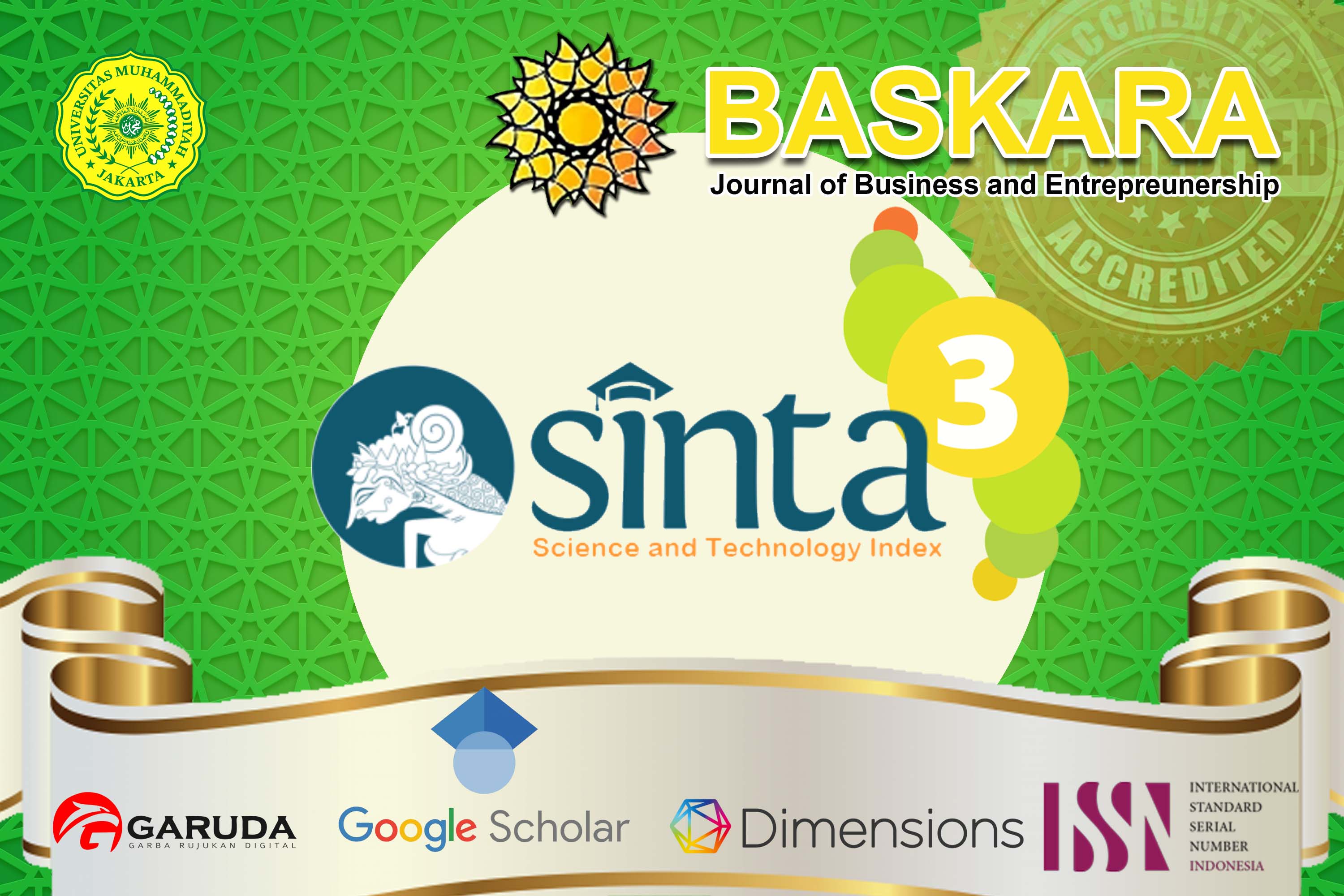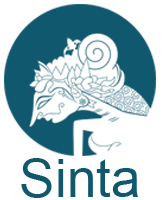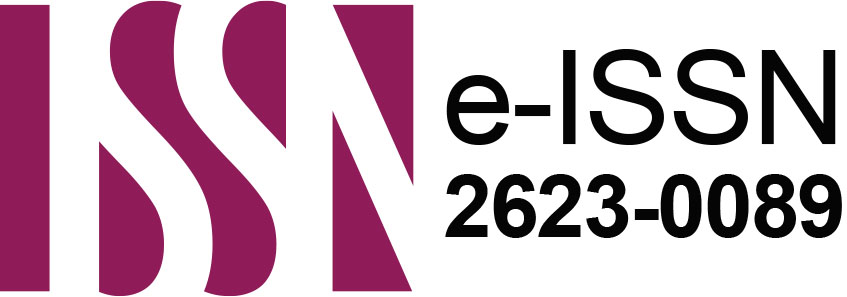Self-efficacy, Innovative Work Behavior and Job Performance in Digital Printing
Abstract
Human resources in organizations play a very important role because the company's success in achieving its goals cannot be separated from the role of its employees. Organizational progress will also be achieved if human resources have good performance. The reason for this study was to clarify the effect of direct and indirect self efficacy against job performance through innovative work behavior.
This review was planned as explanatory research that intends to give a clarification of the causal connection between variables through theory testing and expects to acquire proper testing in making causal determinations. The example of this review was 96 respondents from the workers of Digital Printing Mojokerto East Java, using a saturated sampling technique.
This review utilizes fractional least squares relapse with the Smartpls adaptation 3.0 program. It observes that self-viability straightforwardly has no critical impact on work execution. Be that as it may, self adequacy by implication significantly affects work execution. This shows that creative work conduct can intervene the impact of self adequacy on work execution of organization representatives.
Keywords
Full Text:
PDFReferences
Alshammari, A. A., Rasli, A., Alnajem, M., & Arshad, A. S. (2014). An exploratory study on the relationship between organizational innovation and performance of non-profit organizations in Saudi Arabia. Procedia-Social and Behavioral Sciences, 129, 250-256.
Alwisol. (2005). Psikologi Kepribadian. Malang : UMM Press
Babkin, A. V., Lipatnikov, V. S., & Muraveva, S. V. (2015). Assessing the impact of innovation strategies and R&D costs on the performance of IT companies. Procedia-Social and Behavioral Sciences, 207, 749-758.
Back, Y., Parboteeah, K. P., & Nam, D. I. (2014). Innovation in emerging markets: The role of management consulting firms. Journal of international management, 20(4), 390-405.
Bandura, A. (1997). Self Efficacy : The Exercise of Control. New York: Freeman and Company.
Bergman, J. P., Jantunen, A., & Tarkiainen, A. (2015). Managerial cognition and dominant logic in innovation management: empirical study in media industry. International Journal of Business Innovation and Research, 9(3), 253-271.
Bernardo, M. (2014). Integration of management systems as an innovation: a proposal for a new model. Journal of Cleaner Production, 82, 132-142.
Cottam, A., Ensor, J., & Band, C. (2001). A benchmark study of strategic commitment to innovation. European Journal of Innovation Management.
Damanpour, F. (1991). Organizational innovation: A meta-analysis of effects of determinants and moderators. Academy of management journal, 34(3), 555-590.
Dissanayake, I., Mehta, N. Palvia P., Taras V., & Amoako Gyampah K. 2019. Competition matters! Self Efficacy, Effort, and Performance in Crowdsourcing teams. Information & management, 56
Eka Desiana, N. (2018). Pengaruh Efikasi Diri Terhadap Kinerja Karyawan Melalui Inovasi Sebagai Variabel Intervening (Studi Pada Divisi Sekretariat Dan Humas Pdam Surya Sembada Kota Surabaya). Jurnal Ilmu Manajemen (JIM), 7(2).
Ghozali, Imam. 2021. Partial Least Squares Konsep, Teknik dan Aplikasi Menggunakan Program SmartPLS 3.2.9 Ed. Ke-3. Badan Penerbit Universitas Diponegoro, Semarang.
Klein, A., & Bhagat, P. (2016). Comparative study of technological innovativeness between individuals in the USA and India. Review of International Business and Strategy, 26(1), 100– 117.
Kusuma, A., Purwanto, H., & Utama, P. (2021, June). Pengaruh inovasi terhadap kinerja karyawan dengan self efficacy sebagai moderasi. In FORUM EKONOMI (Vol. 23, No. 2, pp. 302-309).
MacKenzie, S. B., Podsakoff, P. M., & Ahearne, M. (1998). Some possible antecedents and consequences of in-role and extra-role salesperson performance. Journal of Marketing, 62(3), 87– 98.
Marín-Idárraga, D. A., & Cuartas-Marín, J. C. (2019). Relationship between innovation and performance: Impact of competitive intensity and the organizational slack. RAE Revista de Administracao de Empresas, 59(2), 95–107.
Martinette, Louis, et al., 2014. Relation ship Between Learning Orientation and Business Performance and the Moderating Effect of Competitive Advantage. International Business and Economic Reseach Journal. Vol. 13. No. 4.
Muallifah, M., Astuty, I., & Selatan, L. (2016). Kinerja Dengan Self Efficacy Sebagai Mediasi. 7(2), 210–225.
Purnama, C. (2013). Influence analysis of organizational culture organizational commitment job and satisfaction organizational citizenship behavior (OCB) toward improved organizational performance. International journal of business, humanities and technology, 3(5), 86-100.
Purnama, C., Fatmah, D., Hasani, S., & Rahmah, M. (2021). Leadership style as moderating variable influence between Islamic work ethic with performance. Kasetsart Journal of Social Sciences, 42(2), 233-238.
Puryantini, N., Arfati, R., & Tjahjadi, B. (2017). Pengaruh Knowledge Management Terhadap Kinerja Organisasi Dimediasi Inovasi Di Organisasi Penelitian Pemerintah. Berkala Akuntansi Dan Keuangan Indonesia, 2(2), 21–38.
Santrock, J.W. (2007). Psikologi Pendidikan. Edisi Kedua. Jakarta: Prenada Media Group
Sugiyono (2012) Metode Penelitian Kombinasi (Mixed Methods). Alfabeta, Bandung.
DOI: https://doi.org/10.54268/baskara.v5i1.12644
Refbacks
- There are currently no refbacks.
Copyright (c) 2022 BASKARA : Journal of Business and Entrepreneurship
BASKARA: Journal of Business and Entrepreneurship Copyright of Baskara: Journal of Business and Entrepreneurship (e-ISSN: 2623-0089 ). This work is licensed under a Creative Commons Attribution-NonCommercial 4.0 International License |
















